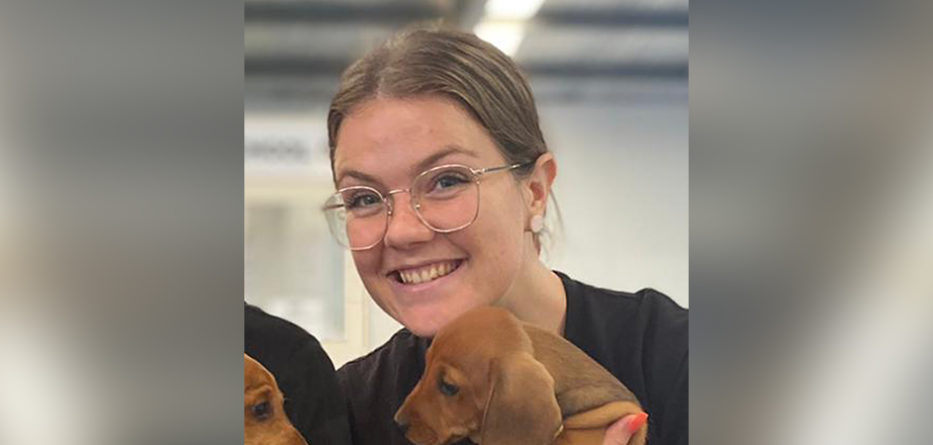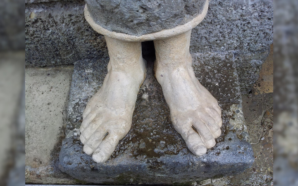Young Adelaide Plenary Council member Maddy Forde has called on the Catholic Church to give greater consideration to the realities of people’s lives in a courageous ‘intervention’ at the first general assembly held last month.
During the First Assembly of the Plenary Council, held in early October, members were able to make brief verbal and/or written interventions on a particular topic each day at the virtual assembly.
Maddy, who is now based in Sydney as campus pastoral associate at the Australian Catholic University, addressed the 278 members in the morning of Wednesday 6 October.
The former Sacred Heart College student and youth minister said she acknowledged her privileged position but also recognised that she was “in a vulnerable position as a young female, speaking these words”.
“I don’t have a theological understanding or vocabulary, so I speak instead from a place of experience, where there is uncertainty and fear that the reality is not being accepted,” she said.
“The reality of increasing mental health rates, the reality of young people facing increased insecurity in all areas of their lives, the reality of climate change, the reality of the challenges our First Nations brothers and sisters encounter daily.
“We forget at the core of these realities are people.”
Maddy reflected on the people who made her feel welcomed within the Church, who fostered and supported her growth as a young woman with “love, care, compassion, and role modelling”.
They taught her that love was “the greatest gift we have to offer others”.
“I look at the people who made me feel safe, welcomed and gave me that ability to encounter the goodness of the faith, who have now left the Church,” she said.
“I still see in them, the goodness, and the love they offer to others, and I still see God and the love of God, outside of the church walls.
“It breaks my heart that the goodness they introduced me to, they no longer feel for themselves. But I understand because I feel the same tension.
“I witness a church guarding tradition and choosing to ignore the pain they have caused, and still cause.
“Words are not enough because our actions offer no learnings.”
Maddy said she refrained from using the word ‘Church’ because she felt it was so far from its core of love and inclusion.
“I have listened to young people within our community who say they don’t belong because of their gender and their age,” Maddy told the assembly.
“I have witnessed young people excluded, and their future taken away, because of who they love.
“Where, in this, is the unconditional love I grew up hearing about?
“What God do we show to young people in this? Are we really offering unconditional love, acceptance, and safety? Where is our focus? Who is at the centre?”
Claire Victory, national president of the St Vincent de Paul Society, also argued that the Church as an institution was excluding people who didn’t fit the “diminishing criteria”.
“I’ve heard interventions that evince a nostalgia for a time when the pews were full on Sunday and marriages didn’t end,” she said.
“This ignores the reality that while those pews were full, children were being abused, unmarried women were being forced to give their babies up for adoption and Indigenous kids were stolen from their families.
“In bemoaning the fact that marriages didn’t end, we ignore the lived experience of so many women for whom a life-long commitment was akin to a life sentence; women who were abused but who were legally, socially, financially unable to leave.”
Claire said the church’s teachings on several matters would be more readily accepted if people could see that those teachings are rooted in love and respect for the dignity of the human person.
“And people do experience that love and respect in the Church, through welcoming and supportive practices, but so often it’s through schools, social services agencies and specific communities or individuals (including some priests and bishops, and many Religious women and men),” she continued.
“But when the official structure or leadership of the Church is seen to treat those welcoming, supportive groups or individuals as outsiders, outliers and trouble-makers – then we should question what the institutional Church is telling the Australian community about who it is.
“Will the Gospel message that human life – all human life – is sacred and should be protected and respected ever cut through?
“Through the Church’s actions so many barriers prevent the full participation of too many people – people who are gay, trans or gender diverse, divorced and remarried, living with a partner but not yet married…
“Much of Australian society today is much more welcoming, nurturing, community-minded and moral than some in our Church seem willing to accept. But that’s probably not surprising if we only count people if they’re in the pews, and you only get to sit on one of those if you fit the extremely narrow criteria for admission.”
In his intervention, Vicar General Fr Philip Marshall said if he were to begin an order or movement in the Church he might call it the ‘Compassionists’ and its charism would be to live the “compassion and tenderness of God to all humanity and creation”.
“It’s constitution would focus on these teachings of Jesus: to not judge anyone; to be servant of all and least of all; to commit to ‘metanoia’ (deep conversion) daily; to forgive all and seek forgiveness from all when it is needed; to be detached from everything but love of God and love of all humanity and creation; It’s works would be to share in the work for the healing of all the wounds of humanity and creation wherever they are found; to proclaim meaning and hope by life, action and word; to witness the joy that comes from communion with divine love, humanity and creation- in ways that do not deny the deep sorrow and suffering of human experience; and to witness praise to the beauty and glory of everything before God,” he said.
“I don’t know if many would join me, but perhaps it would not be needed if that were how we all committed to be as the Church of God in Australia.”
For more information on the Council visit www.plenarycouncil.catholic.org.au
Reproduced with permission from The Southern Cross, the news publication of the Catholic Archdiocese of Adelaide.








